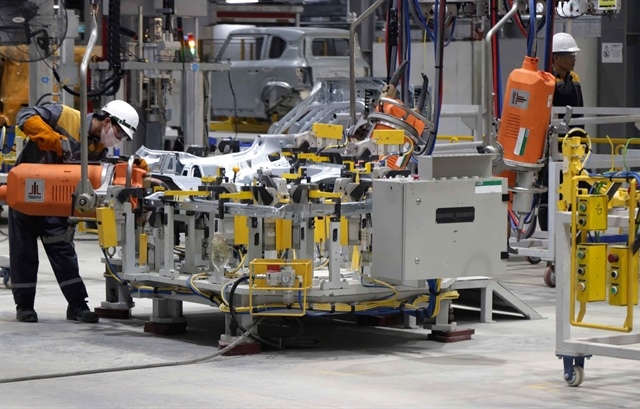Inspectorate blasts EVN diversions
Inspectorate blasts EVN diversions
The Government Inspectorate has found that Electricity of Viet Nam (EVN)'s ineffective and massive non-core business activities were to blame for its large losses.

This is the conclusion it drew after examining EVN's operations.
The Government Inspectorate said by the end of 2011, EVN's non-core investment reached VND121 trillion (US$5.76 billion), surpassing its charter capital of almost VND77 trillion ($3.7 billion).
It said that this was a violation of Ministry of Finance regulations, and, despite the big non-core business investment, EVN recorded losses of VND2.2 trillion ($104.7 million).
The Inspectorate also found that construction problems at many power projects also caused extra costs and that these were among the reasons for the group's power-price hikes.
However, EVN claims that its so-called non-core investment was capital it has poured to its subsidiaries and associated companies to carry out power generation, transmission and distribution activities in line with the law.
EVN said that investment of VND121 trillion mentioned by the Government Inspectorate included investment capital of VND49.6 trillion to its power plants, loans worth of VND70 trillion for its subsidiaries and only around VND2 trillion for non-core business activities in other sectors, such as securities, banking and real estate.
Under Government orders, the group has gradually withdrawn capital for non-core business, said Dinh Quang Tri, EVN deputy general director.
The Inspectorate concluded that some power-plant projects included an area for building houses for staff and maintaining them. Capital for the buildings was included in the project's investment capital. In fact, not only were their houses, but also kindergartens, swimming pools and tennis courts.
The Inspectorate said that the construction of that infrastructure involved total investment of VND595 billion ($28.3 million). The investment had been calculated in power projects, so it was included in the price of electricity. It added that was not right according to regulation.
EVN said houses for labourers working on power projects were far from residential areas, adding that good accommodation would attract skilled workers.
The houses were also used by experts during the plant's construction. When the experts leave, the houses are turned into guest houses or serve as accommodation places for management staff.
Explaining sporting installations, EVN said workers needed to be in good health to do their job so the group had built many facilities for them. This reduced stress and allowed them to keep up their strength.
Tri said calculation of electric prices followed regulations and that calculations were checked by inspection and audit organisations.
vietnamnews
























